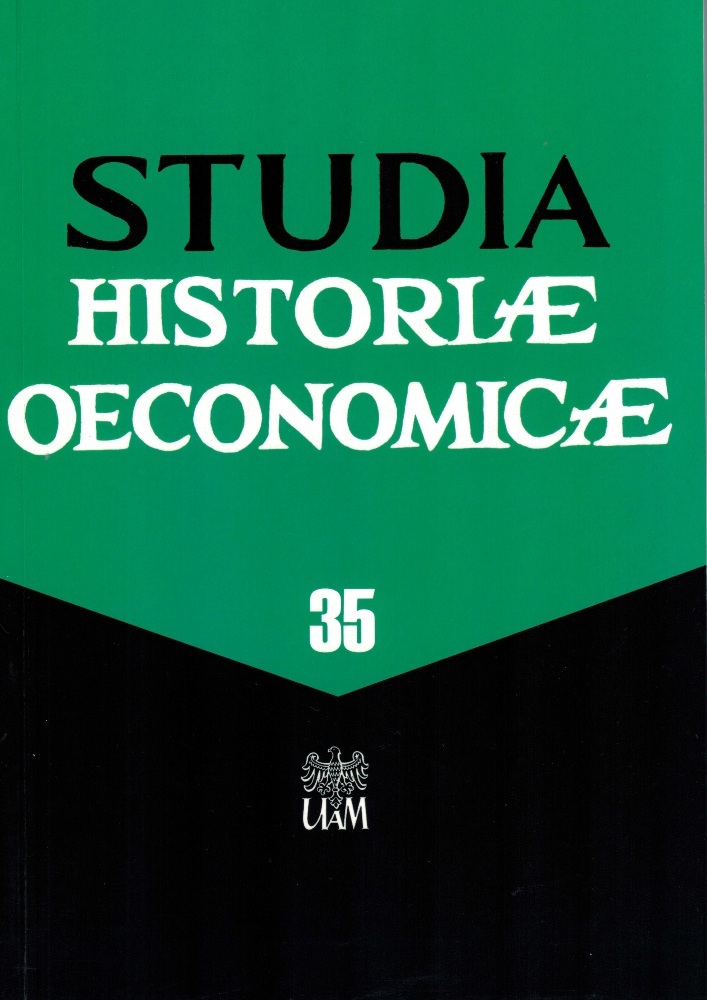Abstract
In post-war Poland, rationing was introduced on three occasions: right after the war in 1945, then in 1951, and at the turn of the 1980s. In 1976, rationing cards for sugar were introduced, in 1981 - for meat, fats, cereal products, cleaning products and many other goods. Fuels were the last product added to this list. This article describes the process of introducing a rationing system for petrol in the Polish People’s Republic. Though the supply system crashed as early as 1981, it took several years to organize a rationing system for petrol. Its evolution did not end until 1984. This delay was caused by the long discussions on how the system should be built. This forced the authorities to introduce a whole range of temporary solutions which limited the demand in the short run, but had no soothing effect whatsoever on the society. To the contrary - the chaos they created intensified negative tendencies (such as speculation), led to market insecurity, and increased mistrust of state regulations.
References
The Archive of New Files, units: Main Inspectorate of Energy Management, Institute of Internal market, the Council of Ministers.
Archive of the Institute of National Remembrance.
Police Main Archive.
Sprawozdanie z działalności Państwowego Zakładu Ubezpieczeń za 1982 rok [A report on the activity of the PZU company operation for the year 1982] (1983), PZU, Warsaw, pp. 31-32.
Uchwała nr 27 Rady Ministrów z dnia 20 lutego 1984 r. w sprawie sprzedaży benzyn silnikowych odbiorcom prywatnym oraz jednostkom gospodarki nie uspołecznionej [The decree no. 27 of the Council of Ministers of February 20, 1984 on the sale of petrol to individual owners and non-nationalized economic entities], (1984), Monitor Polski, no. 5, item 42.
Zarządzenie Ministra Komunikacji z dnia 15 marca 1976 r. w sprawie oznaczania pojazdów samochodowych i przyczep [The decision of the Minister of Transport of March 15, 1976 on labeling cars and trailers], (1976), Monitor Polski, no. 14, item 67.
Grzeszak A. (1985), Kłopoty to ich specjalność [Trouble is their area of expertise], Motor, no. 19, pp. 3-4.
Gutorski K., Czym zastąpić benzynę? [If not petrol, then what?] (1981), Motoryzacja, no. 1, p. 21.
Jak zlikwidować benzynowy „przeciek” [How to deal with the petrol “leak”] (1982), Trybuna Ludu, no. 174, p. 2.
Kornai J. (1985), Niedobór w gospodarce, [Economics of shortage], PWE, Warsaw. Mała Encyklopedia ekonomiczna [Short economic encyclopedia], (1974), PWE, Warsaw.
Mimo najazdu klientów, sprawna sprzedaż paliw w CPN [Despite the crowds, sale of fuels at CPNs goes smoothly] (1983), Życie Warszawy, no. 234, p. 1-2.
Mniej benzyny jesienią i zimą [Less petrol in the autumn and winter] (1983), Motor, no. 42, p. 2.
Nie ma kłopotów z nabyciem benzyny niebieskiej [No more trouble with purchasing the blue petrol] (1982), Życie Warszawy, no. 201, p. 1-2.
Obrady Komitetu Gospodarczego Rady Ministrów [The session of the Council of Ministers Economic Committee], (1981), Trybuna Ludu, no. 297, p. 1- 2.
Od dziś etylina 78 nie reglamentowana [78-octane petrol no longer rationed], (1982), Życie Warszawy, no. 186, p. 1.
Rozsądku! [Think!], (1981), Motor, no. 29, p. 2.
Suchecki B. (1981), Po benzynowej pustyni, [In the petrol desert], Motor, no. 32, p. 5; AAN, URM 32/5, f. 14.
Szlichciński K. (2002), Brytyjska gospodarka wojenna 1939-1945 [War economy in Britain in the years 1939-1945], Bellona, Warsaw.
Wolny rynek reaguje [The free market reacts], (1982), Motor, no. 26, p. 2.
Wycinanie kuponów zamiast stemplowania [Cutting coupons instead of stamping], (1984), Życie Warszawy, no. 50, p. 2.
License
Copyright (c) 2017 Andrzej Zawistowski

This work is licensed under a Creative Commons Attribution-ShareAlike 4.0 International License.





